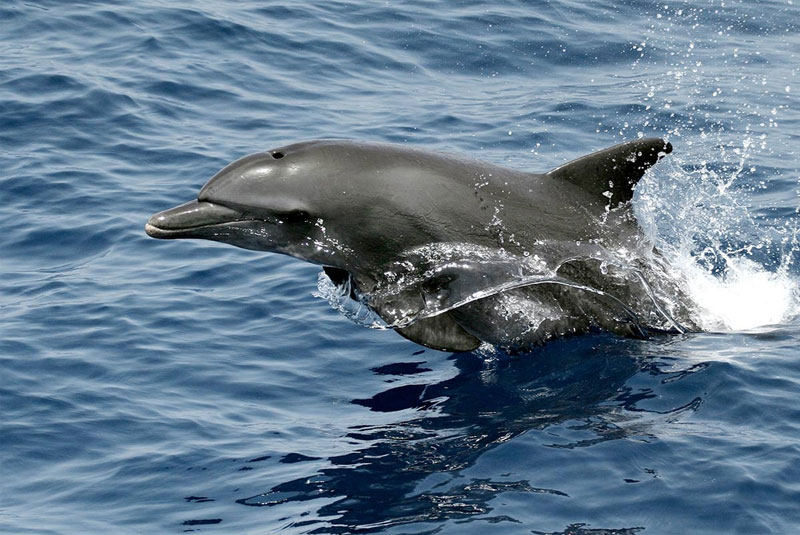Animals Without Borders: 'Open' Dolphin Society Discovered

Dolphins in Shark Bay, Australia, are free spirits of sorts, leaving their group's borders unpatrolled and letting their females mingle unrestrained among outsider males, new research confirms. This is the first truly open mammalian community, the researchers say.
Since it has been seen only in Shark Bay's large and complex group of bottlenose dolphins, researchers add that they can't be sure how widespread this open-community phenomenon is.
The dolphins' open group membership is different from any other mammal group's. Most mammals, including humans, elephants, chimpanzees and dolphins, have highly complex social bonds and center their groups on breeding females. Individuals in semi-closed groups like these usually perceive outsiders as hostile.
The Australian dolphins definitely have the "complex social bonds" requirement down: Male dolphins form strong bonds with two or three other males — their wingmen in the search for mates. These males also participate in larger groups of four to 14 to defend their areas, with such groups of males even forming alliances with other defensive groups. These bonds between males can last unchanged for more than 15 years, the researchers say.
Because semi-closed networks have been found in every other mammal species with complex social structure, the same might be expected for the Shark Bay dolphins. But previous studies failed to find any social boundaries, and with more data the researchers said they were able to fully discount the idea.
The researchers studied the dolphin community off the coast of Australia from July through November every year from 2001 to 2006. The researchers recorded which dolphins they saw, where they were and whom they were with. They also followed some groups for up to eight hours to monitor how they behaved and if their peers changed.
The researchers used this data to map the territories of the females and the groups of males to see if they overlapped. The females weren't bound to any one group of males, they found; the females moved freely between males in different groups. They found no evidence of "semi-closed" social lives in these dolphins and were able to reject the remaining theories supporting such a system.
Sign up for the Live Science daily newsletter now
Get the world’s most fascinating discoveries delivered straight to your inbox.
"The Shark Bay dolphins, therefore, present a combination of traits that is unique among mammals," the authors write in their paper, published today (March 27) in the journal Proceedings of the Royal Society B: Biological Sciences.
You can follow LiveScience staff writer Jennifer Welsh on Twitter @microbelover. Follow LiveScience for the latest in science news and discoveries on Twitter @livescience and on Facebook.
Jennifer Welsh is a Connecticut-based science writer and editor and a regular contributor to Live Science. She also has several years of bench work in cancer research and anti-viral drug discovery under her belt. She has previously written for Science News, VerywellHealth, The Scientist, Discover Magazine, WIRED Science, and Business Insider.










